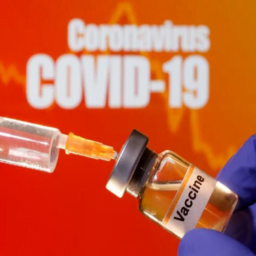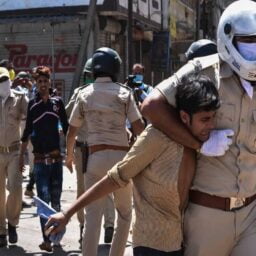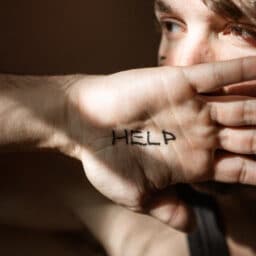INTRODUCTION
From a devastating story from Karnataka, a couple, Mamta and Nanjundegowda spent years trying for a child. Finally, in May they got blessed with a daughter but unfortunately, the father lost his life to covid barely five days before her birth and the mother passed away five days after her birth, leaving their precious awaited child alone.[1] This is just one story among the hundreds and probably thousands of cases of children being orphaned because of this lethal infection. What will happen to these vulnerable children, their future? Who will take care of them? Many concerns were raised by activists after seeing ripple in such kinds of cases.
On June 1, the National Commission for Protection of Child Rights (NCPCR), a statutory body, told the Supreme Court that “more than 9,300 children in the country had lost parents or were abandoned during the Covid-19 pandemic. These include more than 1,700 children who lost both their parents and have been orphaned.”[2]
PROVISIONS UNDERTAKEN BY THE GOVERNMENT
Prime Minister Narendra Modi announced a scheme, the “PM-CARES for Children” scheme, to support children orphaned due to Covid Pandemic. In a statement given by the Prime Minister’s Office, they informed, “Under this scheme, fixed deposits will be opened in the names of such children, and the PM-CARES fund will contribute through a specially designed scheme to create a corpus of Rs 10 lakh for each of them when he or she reaches 18 years of age.”[3] Many states also released various provisions for the issue regarding orphaned children in the pandemic.
New Delhi: The Delhi government has decided that all covid orphans will receive Rs 2500 per month until the age of 25. To deal with the issues faced by such children, the Women and Children Development Department has set up a task force.
Uttar Pradesh: Chief Minister Yogi Adityanath-led BJP government in UP has announced that it will take responsibility for minors who lost their parents during the disastrous second wave of the virus pandemic in the state. Under the “Uttar Pradesh Mukhyamantri Baal Sewa Yojana”, the state government will give Rs 4,000 per month as financial assistance to a child’s guardian or caretaker till he/she attains adulthood. Children below 10 years who do not have any family members will be housed and taken care of in government-run homes.
The Department of Women and Child Development has been directed to come up with a comprehensive plan for the well-being of children. Furthermore, task forces are being formed at the district level to identify and adopt COVID-19 orphans.[4]
Maharashtra: The Maharashtra government has created a task force at the district level which will be led by district collectors of the particular district. These task forces will give care facilities to orphaned children due to pandemics and look after the legal rights over the property of their parents.
Bihar: The Bihar Government declared “Bal Sahyata yojana” that will provide a sum of Rs 1500 to such orphaned children who lost their parents due to covid.
Karnataka: It put out a very exhaustive provision for the vulnerable orphaned children. The Chief Minister floated the “Bal Seva scheme”. Under this scheme, Rs 3500 monthly will be given to the guardians of such children. Child care institutions will be availed for children without any guardian or caretaker support. For education facilities, these children will be admitted to residential schools. The state government set up hostels and special care facilities for infected children who lost their parents in the pandemic as well as launched a helpline “1098” for their protection.
Several other states also announced similar provisions to support the orphaned children of the state. While provisions are well and good, they are failing at effectiveness and being utilized to the full, as the public is barely aware of such provisions and lack the means of accessing them easily.
Recently, due to the rise in orphaned vulnerable children’s cases, as a result, a rise in child trafficking and illegal direct adoption through social media websites were revealed.
Many messaging apps like Twitter and WhatsApp were flooded with messages containing information about adopting certain children with no regulation from legal authorities and many of them also turned out to be fake. This was one of the reasons why direct adoption was declared illegal. “Illegal adoption amounts to child trafficking and is a punishable offence under JJ Act, 2015 and IPC,” according to Central Adoption Resource Authority.
Since most of the vulnerable orphan kids are from poor backgrounds and residing in villages, they and the concerned adults of those areas are barely aware of the provisions laid out by the government. They lack the means or proper knowledge about reporting such issues which results in the effectiveness of suck provisions and laws. As a citizen of the country, it is our legal responsibility to report about any known orphaned children case including trafficking and other related illegal cases.
WHAT CAN YOU DO?
- The most accessible and easiest means to help orphaned children is using the nationwide helpline number “1098”. This ChildLine emergency number runs in collaboration with the Ministry of WCD. It is a 24-hour toll-free helpline number operated by Childline India Foundation, a non-government organisation in India that works for children in distress.
- You can contact local/district Child Welfare Committees (CWCs) and/or inform the local police station. If you find a child alone at home or hospital, talk to them and if you find them with such cases, then immediately inform law enforcement agencies.
- Adoption is another solution available. However, direct adoption is illegal. To adopt children legally, one has to register themselves with CARA online (Central Adoption Resource Authority). They will bring the eligible children to you. Further, the adopters are also surveyed, to check whether they are capable of providing for the child. The whole process takes six to seven months approximately. Many follow-up processes are also done to confirm that the child is happy with his/her adopted parents.
CONCLUSION
The times are tough. Medical facilities and economic growth are not the only thing concern to tackle for the government. The covid pandemic has generated a ripple effect in which all the governmental and private institutions are getting affected giving rise to threatening issues concerned with basic rights and quality of living. Orphaned children are legally citizens of the country and they deserve a proper future and a happy childhood. The pandemic has raised many challenges and the protection of such children is one of them.
Even after announcements of multiple provisions for their protection at the state and central level, their use remains at a fairly low point due to lack of awareness and illegal exploitation of such vulnerability. Stricter rules and more awareness is what the country needs to protect the children of the country, especially the ones with no parents or guardians who are completely alone with barely any idea about surviving in the world and highly exposed to child trafficking. The pandemic hasn’t stopped and the cases are still increasing. The country needs to come together in helping such children on whom the future of the country depends.
Author(s) Name: Gargi Gouri (National Law University, Odisha)
References:
[1] Diana Sahu, ‘Pandemic Crisis: Orphaned By COVID-19, Will These Kids Find Care?’ (The New Indian Express, 2021) <https://www.newindianexpress.com/states/odisha/2021/jun/06/pandemic-crisis-orphaned-by-covid-19-will-these-kidsfind-care-2312433.html> accessed 10 July 2021.
[2] Akriti Anand, ‘Covid-19 Leaves Hundreds Orphaned. How You Can Help And What You Should Know About Adoption’ (India Today, 2021) <https://www.indiatoday.in/coronavirus-outbreak/story/covid-19-leaves-hundreds-orphaned-how-you-can-help-and-what-you-should-know-about-adoption-1809769-2021-06-02> accessed 10 July 2021.
[3] Akriti Anand, ‘Covid-19 Leaves Hundreds Orphaned. How You Can Help And What You Should Know About Adoption’ (India Today, 2021) <https://www.indiatoday.in/coronavirus-outbreak/story/covid-19-leaves-hundreds-orphaned-how-you-can-help-and-what-you-should-know-about-adoption-1809769-2021-06-02> accessed 10 July 2021.
[4] Ibid 3.















